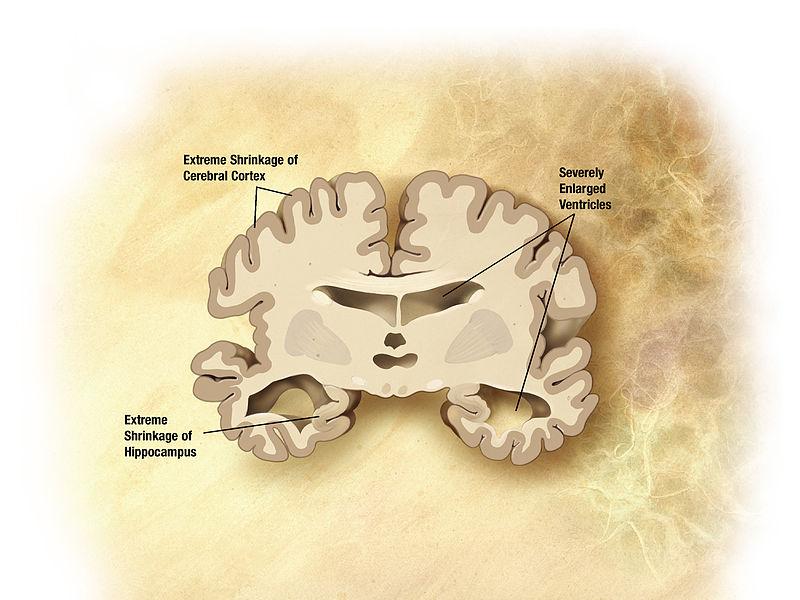Alzheimer’s research funding difficult to come by
People with Alzheimer’s have physical changes to their brain as the disease progresses. (Photo from the Alzheimer’s Disease Education and Referral Center, a service of the National Institute on Aging.)
Alzheimer’s is the sixth leading cause of death in the United States. More Americans each year die from Alzheimer’s than breast or prostate cancer combined.
And yet, in 2011, the National Institutes of Health spent more than $6 billion on cancer research, but less than $480 million on Alzheimer’s research. The NIH spends $3 billion a year on AIDS research though it affects only 20 percent as many Americans.
U.S Rep. Ed Markey, D-Mass., has become a crusader for Alzheimer’s research funding since his mother, Christina, developed Alzheimer’s in the 1980s. He sponsored the National Alzheimer’s Project Act in the U.S. House, and is fighting to direct more funding to it.
Christina Markey died in 1998 after living with the disease for 13 years.
“Alzheimer’s is a disease which clearly has been under-funded,” Markey said.
That’s because, at least in part, Markey says, Alzheimer’s sufferers and their caregivers can’t get to Washington to plead their case.
“That’s different from other diseases where the victims themselves can the lead the marches,” he said.
Another problem for generating research funding for Alzheimer’s is the stigma that goes along with it. Because Alzheimer’s is a disease of the mind, many people are reluctant to talk about it — or even admit they or a loved on are suffering.
There’s also a perception that diseases that afflict the young are more worthy of attention. Though it’s becoming more clear that Alzheimer’s can afflict the younger as well. High profile Tennessee basketball coach Pat Summitt recently admitted that she had been diagnosed with Alzheimer’s.
Henry McCance dealt personally with the lack of research on Alzheimer’s. When his wife was diagnosed, doctors suggested he giver her three Advil a day, or perhaps try the cholesterol-lowering drug Lipitor.
“When I learned the magnitude of the disease and the length of time the disease has been known, and then the weakness of the response the medical community can offer families in my position, I was shocked, frankly,” he said.
McCance, however, is in a unique position to help. He’s a former head of a venture capital fund and in 2004 he partnered with two other families to create a fund for finding a cure for Alzheimer’s. It uses the venture capital model McCance knows so well to identify and fund top researchers.
“We are not afraid to fail. And we know if we do fail, the learning we gain from that will be valuable as well,” he said.
The fund spent $3 million in 2010 on 15 projects. Now he wants the government to step up and do its part as well.
Markey said the United States is already spending a fortune on treating those with Alzheimer’s, and it’s short-sighted to not look for treatments to cut those expenses. Medicare and Medicaid spent $130 billion caring for those with Alzheimer’s last year.
“That number will balloon to $500 or $600 billion by the time all the baby boomers have retired,” he said. “The strongest argument, beyond the humanitarian argument, is that the budget cannot be balanced in the years ahead if this kind of a drain is placed upon it.”
Alzheimer’s advocates say the lack of federal funding is limiting research. Tim Armor, president of the Cure Alzheimer’s Fund, said the disease could be cured, if only the resources were in place.
“The science is moving much faster than the resources. If we had the money, the science would be able to move much faster toward ameliorating this condition,” Armor said.
